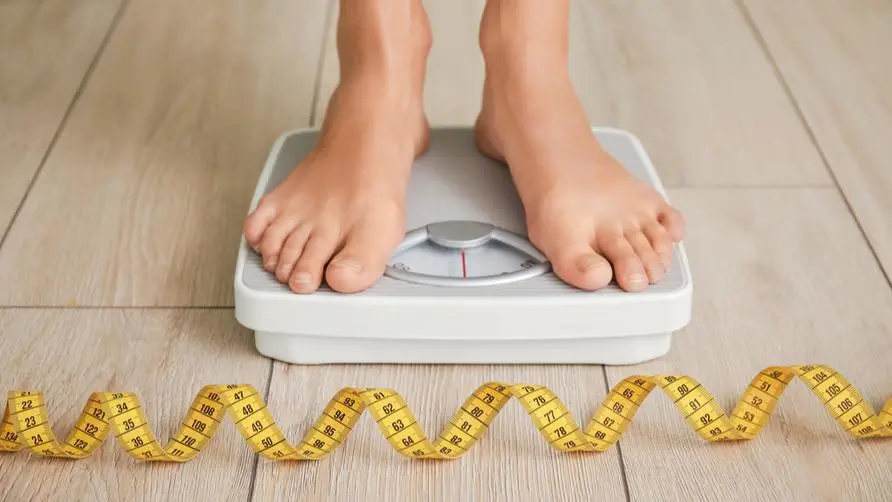Is using willpower to lose weight doomed to failure? Psychologists reveal 3 tips to help with weight management

Why do you always fail to lose weight using willpower alone?
Whenever you have the idea of losing weight, you are ready to control your weight, but you always give up halfway through? Why can’t weight loss just by willpower end in failure?
Psychologist Su Congqi, director of the Four Seasons Heart Psychological Counseling Center, said in an exclusive interview with “healthorn” that most people’s imagination of willpower is “too beautiful.” In fact, willpower is like a muscle. It is a limited and precious resource of the body. Excessive use will cause fatigue. When your willpower is exhausted, it is easy to fall back on your old eating habits, and your hard-earned weight loss may return to where it started.
“The psychological definition of willpower is actually the process of self-control, so it will become more and more tiring the more you use it, because the body faces various choices and judgments every day, which consumes willpower!”
Psychologist Su Congqi said that the popular weight loss methods such as 168 fasting and ketosis pose great challenges to willpower. Most of those who can implement them and succeed have excellent willpower. In fact, it is not easy for ordinary people to succeed. On the contrary, it is easy for them to self-dislike when they see others succeeding in losing weight, which causes psychological pressure.
Is your willpower strong enough to overcome hunger?
Can you successfully lose weight if you learn to use willpower to overcome hunger? Psychologist Su Congqi pointed out that hunger can be divided into “physiological hunger” and “psychological/social hunger.” Physiological hunger is a drop in blood sugar, and hormone secretion prompts the body to look for food and eat. It will stop in time after getting enough food. Psychological/social hunger is the desire and behavior to eat that is influenced by thoughts, emotional stress, behavior or environment. This kind of hunger often comes from psychological needs and is also one of the biggest causes of obesity.
“Simply put, physiological hunger is related to the lower body (lower abdomen), and psychological hunger is related to the upper body (thoughts, thoughts). Furthermore, physiological hunger is often replaceable and slowly cumulative, but psychological hunger is not. , you may not have felt this way before, but suddenly you will want to eat it when you smell it or hear it, and you especially want to eat a certain kind of food!”
Psychologist Su Congqi explained that physiological hunger comes from gastrointestinal contraction and peristalsis, while psychological hunger often comes from thoughts or emotions of “I really want to eat” or “I have to eat this.” Most of the physiological hunger can be replaced. For example, if there are no eggs, you can eat duck eggs instead. Psychological hunger needs are more difficult to replace and often have a specific direction such as “hand-shaken drink”, “fried chicken steak”, etc.
“Healthy food takes care of physical health, unhealthy food takes care of mental health!” Psychologist Su Congqi said that people’s eating is not necessarily driven by a single hunger. For example, eating donuts may be partly due to physiological hunger needs, and partly due to physical hunger. Related to psychological hunger. If you find that the foods you choose are all to satisfy your psychological hunger, you should consider consulting to find out the reasons why you eat to satisfy your psychological needs.
Use willpower to lose weight successfully? 3 principles to help with weight management
“I often say, ‘It’s better to have good settings than willpower.’ It’s important to use willpower in the right place!” Psychologist Su Congqi suggested that in order to achieve weight management, willpower should focus on three key points. The first is to “cultivate” good new habits. First observe and record your eating patterns, and then adjust to a new pattern. For example, if you want to drink milk every afternoon, you can adjust to ordering only half of sugar every day, or deliberately arrange fixed activities to avoid meal ordering time.
Second, use your willpower correctly to implement the “relaxation” plan, stipulate when you can eat your favorite food every week or every month, relax yourself appropriately, and don’t always be in a state of “fighting temptation.”
Third, make good use of your willpower to “avoid” obesity traps, such as dinner parties with friends and social events. Knowing that participating in these occasions will inevitably consume high-fat, high-calorie foods and drinks, you should use your willpower to avoid the traps. For example, reduce the frequency of participation, tell relatives and friends that you are losing weight, or choose non-alcoholic drinks as dietary replacements.
“Willpower is very precious. It should be used where it must be practiced. Use it to choose, plan, and make the most appropriate arrangements according to your own environment and behavioral processes. You can reduce the temptation to face temptation and increase the success of achieving a healthy body. Rate!”
Psychologist Su Congqi reminds that if you don’t know much about your eating patterns and have no confidence in planning your willpower, you may wish to participate in counseling or fitness courses to put yourself in an appropriate environment and be guided by a psychologist or professional coach to reduce the consumption of willpower. The process of strength helps you achieve ideal weight management.
Further reading:
Is drinking sugary drinks every day an addiction-like vicious cycle? Could the source be stress?





